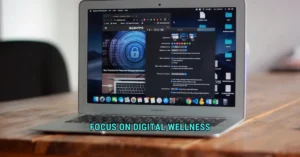
Future of Remote Work Technologies
The way we work is changing fast, and remote work technologies are playing a big role in this shift. With tools like video conferencing, cloud storage, and AI-powered assistants, employees can now work from anywhere with ease. Businesses are adopting these technologies to improve productivity, reduce costs, and offer employees greater flexibility. In the future, innovations like virtual reality meetings and smarter automation tools will make remote work even more seamless. While remote work offers many benefits, there are challenges like cybersecurity risks and maintaining team connections.
Companies must find the right balance between technology and human interaction to ensure success. As more industries embrace remote work, staying updated with the latest trends and tools is essential. This blog explores how remote work technologies are shaping the future and what to expect in the coming years.
The Future of Remote Work Technologies
Remote work has grown from a rare perk to a standard way of working. As we move forward, the technologies that support remote work keep getting better and smarter. Let’s look at what’s coming next in remote work tech and how it will change the way we work.
Virtual Reality (VR) Offices Will Feel More Real

Right now, most remote meetings happen through regular video calls. But VR technology is changing this. Companies are making virtual offices where you can “walk around” and talk to coworkers as if you’re in the same room. You’ll be able to use hand gestures, move around virtual meeting rooms, and even write on virtual whiteboards.
Think about putting on a VR headset and instantly being in your office. You could turn your head to chat with a teammate or move to a quiet corner for focused work. As VR headsets get lighter and more comfortable, more companies will likely try these virtual spaces.
The best part? These virtual offices can look however you want. Your team could meet in a calm garden setting one day and a high-tech boardroom the next. This flexibility helps keep work interesting and might even boost creativity.
AI Will Make Remote Work Smoother

Artificial Intelligence is becoming a helpful assistant for remote workers. It’s already helping with basic tasks like scheduling meetings and taking notes, but it’s going to do much more.
Soon, AI will help by:
- Writing first drafts of emails and reports
- Finding important information in long video meetings
- Translating conversations in real-time for global teams
- Suggesting the best times for team meetings across time zones
- Helping manage your daily schedule based on your work patterns
AI will also get better at understanding when you’re most productive and help plan your day accordingly. It might suggest when to take breaks or when to tackle your hardest tasks.
Better Tools for Working Together

The tools we use to work together online are getting major upgrades. New collaboration software will let multiple people work on the same project at once, with changes showing up instantly.
These new tools will:
- Show exactly what each team member is working on in real-time
- Let you quickly switch between text, voice, and video chat
- Keep all project files, messages, and updates in one place
- Work well even with slow internet connections
- Make it easier to share and get feedback on work
The goal is to make remote collaboration feel as natural as working side by side. You’ll be able to quickly share ideas, make changes together, and keep projects moving forward smoothly.
Focus on Digital Wellness

As remote work becomes more common, companies are paying more attention to digital wellness. New tools are being developed to help prevent burnout and keep a healthy work-life balance.
Some upcoming features include:
- Smart notifications that know when not to disturb you
- Automatic reminders to take breaks and stretch
- Tools to track and improve your sitting posture
- Features that help you disconnect after work hours
- Ways to measure and reduce screen fatigue
These tools will help remote workers stay healthy and productive without feeling overwhelmed by technology.
Stronger Security for Remote Work

With more people working from home, keeping work data safe is super important. Future remote work tools will have better security built right in.
New security features will include:
- Simple but strong ways to log in, like face recognition or fingerprints
- Better ways to keep work data separate from personal data on home devices
- Smart systems that can spot and stop security threats automatically
- Easy-to-use encryption for all work communications
- Better ways to keep networks safe when people work from different places
These security updates will help companies feel more confident about remote work while keeping things simple for employees.
What This Means for Workers and Companies
All these changes will make remote work easier and more productive. Companies won’t have to worry as much about whether remote work is as good as being in the office. Workers will have more flexibility in how and where they work.
Some benefits we’ll see:
- Less time wasted on basic tasks thanks to AI help
- Better communication between team members
- More natural ways to work together online
- Healthier work habits and better work-life balance
- Safer ways to handle company information
However, companies will need to:
- Train workers on how to use new tools
- Make sure everyone has good internet access
- Keep up with security updates
- Think about which new technologies are worth investing in
- Help workers stay connected as a team
Looking Ahead
The future of remote work technology looks promising. While we might not see all these changes happen right away, they’re already starting to appear. Companies that start preparing for these changes now will be in a better position as remote work continues to grow.
The key is finding the right balance. Not every new technology will be right for every company or team. The best approach is to pick tools that really help your team work better together while keeping things simple and secure.
As these technologies improve, remote work will become even more common. It might even become the main way many people work. The companies that do well will be the ones that use these new tools to help their teams work together effectively, no matter where they are.
Remember, the goal of all these new technologies is to make remote work better for everyone. When used well, they can help teams be more productive, creative, and connected than ever before.
FAQs
What are remote work technologies?
Remote work technologies include tools like video calls, cloud storage, and collaboration apps that help people work from anywhere. These technologies make communication, file sharing, and teamwork easy, just like working in an office.
How will remote work change in the future?
Future remote work will use AI, virtual reality, and better internet connections. These technologies will improve virtual meetings, teamwork, and productivity, making remote work feel more natural and efficient.
Will remote work replace office jobs completely?
Not completely! Many companies will use a hybrid model, combining office and remote work. While technology makes remote work easier, some jobs still need in-person meetings and teamwork for the best results.
What are the benefits of future remote work technologies?
Future technologies will improve flexibility, reduce commuting stress, and boost productivity. Smart AI tools will help automate tasks, and virtual offices will make teamwork smoother, allowing employees to work efficiently from anywhere.
Are there any challenges with remote work technologies?
Yes! Cybersecurity risks, internet issues, and feeling disconnected from coworkers are some challenges. However, future innovations like stronger security, better internet, and interactive virtual spaces will help solve these problems.
Also Read:
Work from the Mountains: 5 Trending Hill Stations for Remote Workers
Future of Work: 5 Points on Hybrid Jobs Made Easy
References:
https://en.wikipedia.org/wiki/Remote_work
https://en.wikipedia.org/wiki/Virtual_workplace
https://www.researchgate.net/publication/374805838_The_future_of_remote_work
Disclaimer:
This blog is for informational purposes only. The views expressed are based on current trends and insights. We do not guarantee accuracy or completeness. Readers should conduct their research before making any decisions based on this content.



